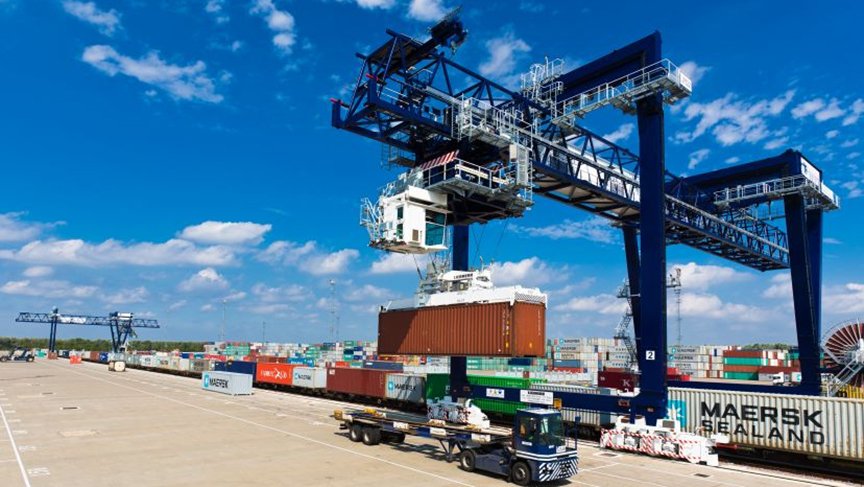Port of Felixstowe embarks on three-year project to electrify operations
UK Power Networks Services has won a contract to electrify operations at the UK’s largest container port, the Port of Felixstowe, which handles forty per cent of the country’s container traffic.
UK Power Networks Services will supply new electrical technology needed to allow the port to step away from a reliance on red diesel, meet its net zero aspirations, reduce emissions and increase the resilience of the port’s electricity network.
This is the energy infrastructure company’s first major project in the ports industry and one of its largest projects in the last five years.
The three-year decarbonisation project includes upgrading the existing 11,000-volt electricity network to supply the seventeen new electric gantry cranes to help load and unload some of the four million containers they lift each year.
The electrification upgrade will also allow 48 new electric tractor units for the port to replace some of the existing diesel vehicles which transport containers around the port for distribution.
This project will not only help the Port of Felixstowe on its sustainability journey, but will improve air quality around the port by eliminating diesel powered cranes and vehicles.
Steven Muscat, head of engineering at UK Power Networks Services, said, “We are excited to be working with the Port of Felixstowe to further decarbonise the port through electrification of its operations. The new electrical infrastructure and the rollout of electric cranes and tractor units will make a significant step in contributing to the port’s sustainability targets.”
UK Power Networks Services will be delivering the project through its on-going collaboration with Hitachi Energy, set up to combine the strengths of two leading businesses serving the transport industry to provide smart energy infrastructure technologies to power zero-emission ports and terminals, giving operators control over their energy infrastructure and the decarbonisation of operations.
In its Insight position paper UK Power Networks Services says that if no action is taken to transition to renewable energy sources and low carbon alternative fuels, CO2 emissions from ports and international shipping could account for 17% of global CO2 emissions by 2050.
While electric shipping will be part of the global solution in the future, energy infrastructure technology is available now for UK ports to begin decarbonising their operations.
Opportunities include providing shore to ship power for marine vessels, transitioning cranes, forklifts, tractors and other vehicles from petrol and diesel power to electric, and integrating new energy technologies such as renewable generation and hydrogen.
These energy transition solutions will have a significant impact on electricity networks and will require a comprehensive energy infrastructure strategy to deploy sustainable technologies that will eventually replace equipment traditionally powered by fossil fuels.

